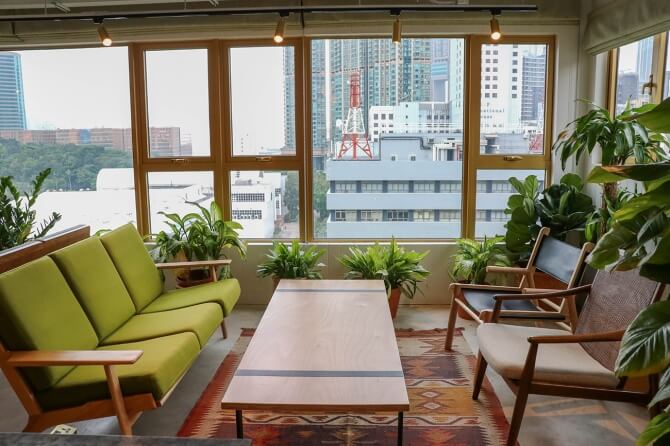
Today more than ever, more people are relocating from rural to urban areas. With the human population growing at a rapid scale, providing a roof over our heads has become a challenge, especially in densely populated places.
This has led many city dwellers to downsize to smaller studio apartments to adapt to these changes and ensure an affordable place to live without compromising on location. Working with less space certainly has its perks for us, the consumers, but how does it benefit the world around us? Let’s take a look.

Reduced energy consumption
First things first, smaller apartments spend significantly less energy compared to an average home. They take much less electricity to heat and cool, meaning you’ll be putting less carbon emissions into the air by simply choosing to downsize.
Heating a home is especially detrimental to the environment. It doesn’t really matter what kind of heating system you use, every time you turn on the heater, it’ll have a negative impact on the environment. Once you switch to a smaller apartment, you’ll see your heat usage dropping significantly, and in turn, you’ll be able to save a lot of money in the long run. Sometimes, the utilities will be included in your monthly rent, making the budgeting so much easier.

Reduced retail consumption
Another environmental benefit that comes with small apartment living is that it discourages mindless shopping habits that only clutters up your apartment. When you’re working with less space, it forces you to minimize the number of items you possess since there’s not enough room to keep everything stored.
An average American household has around 300,000 items, so you can imagine how challenging it may be to keep a living space tidy and clutter-free with so many things stored away. Living in a studio apartment reduces the need for excessive retail consumption and forces you to declutter and let go of the items you don’t need and use. Once you become more mindful about the things you own, you won’t consume as much, meaning there will be less waste going into the landfill.

Less space to furnish and decorate
Unless you’re an extreme minimalist and plan on living furniture-free, you will need to furnish your apartment and bring in some decor to make it look more pleasant and liveable. Now, furnishing and decorating a home or even a one-bedroom apartment can be expensive, and the bigger they get, the bigger the furniture you’ll need to buy.
Choosing to downsize reduces the need for excessive, bulky furniture, and sometimes even completely eliminates it in case of furnished studio apartments. This allows you to focus on getting several but durable, high-quality pieces. Since quality furniture lasts longer, you’ll need to replace it less often, meaning you won’t be contributing to landfills. In fact, you can go a step further and give a new life to your furniture by repurposing it – you’ll be doing Mother Nature a big favor.

Convenient location
Smaller apartments take less space and require less money, time, and materials to build. As such, they’re now becoming more popular around the world, but especially in major metropolises accommodating a large number of residents.
In places such as Asia, the small living trend is growing at a rapid pace, with many career-focused individuals, tourists, and digital nomads opting for serviced apartments for rent in Hong Kong as a practical housing solution, both short-term and long-term. These apartments are often conveniently located, so everything is within walking distance. This reduces or completely eliminates the need to rely on cars to commute, which are big emitters of greenhouse gases. This means you can live in a sought-after location while still reducing your personal carbon footprint.

More time spent outside
Finally, living in a small space encourages you to get outside more and explore the world around you. This can be especially beneficial for someone who’s a homebody and looking to get themself out there, socialize, and be more on-the-go. Plus, spending more time outside is directly linked to feeling happier and more content, so you’re likely to see your mental health improving.
Being outdoors more than usual also means you’ll be more physically active, and you’ll also reduce the risk of suffering from vitamin D deficiency by exposing yourself to natural light. Finally, since you won’t be spending all day indoors, you’ll also use less electricity which, again, means increased energy savings and reduced environmental impact.
Downsizing is one of the biggest changes you can make to help preserve Mother Nature and lower your ecological footprint. Although it may seem like a small step on an individual level, the more people embrace the concept of small space living, the lesser the impact we will have on our planet.



